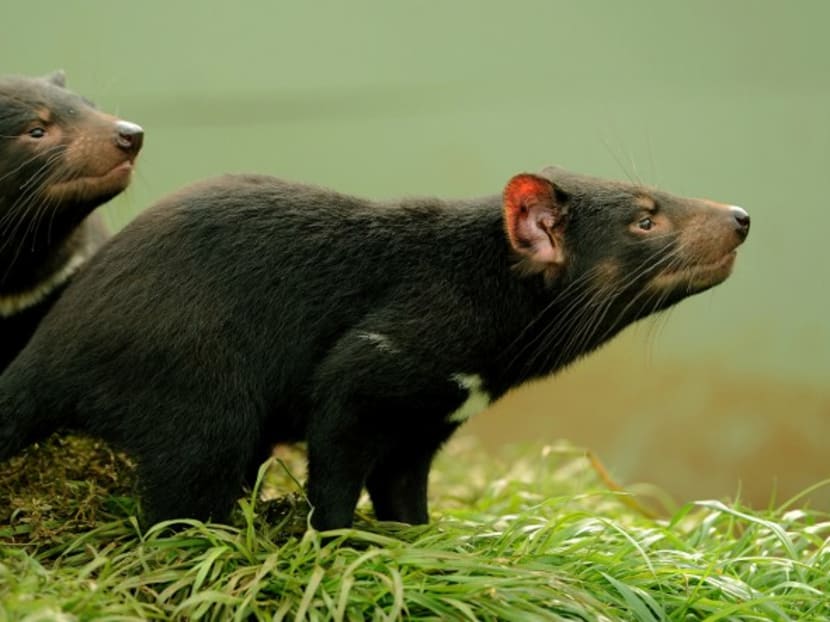Tasmanian Devils' milk could fight superbugs: Australia scientists
SYDNEY — Mother's milk from the marsupials known as Tasmanian devils could help the global fight against increasingly deadly "superbugs" which resist antibiotics, Australian researchers said on Tuesday (Oct 18).

Tasmanian devils in their enclosure at Devil Ark in the Barrington Tops area of Australia's New South Wales state. Photo: AFP
SYDNEY — Mother's milk from the marsupials known as Tasmanian devils could help the global fight against increasingly deadly "superbugs" which resist antibiotics, Australian researchers said on Tuesday (Oct 18).
Superbugs are bacteria which cannot be treated by current antibiotics and other drugs, with a recent British study saying they could kill up to 10 million people globally by 2050.
Scientists at the University of Sydney found that peptides in the marsupial's milk killed resistant bacteria, including methicillin-resistant golden staph bacteria and enterococcus that is resistant to the powerful antibiotic vancomycin.
The researchers turned to marsupials like the devil -- which carry their young in a pouch after birth to complete their development -- because of their biology.
The underdeveloped young have an immature immune system when they are born, yet survive growth in their mother's bacteria-filled pouch.
"We think this has led to an expansion of these peptides in marsupials," University of Sydney PhD candidate Emma Peel, who worked on the research published in the Nature journal Scientific Reports, told AFP.
"Marsupials have more peptides than other mammals. In the devil we found six, whereas humans have only one of this type of peptide.
"Other research in other marsupials has shown that tammar wallabies have eight of these peptides and opossums have 12," said Ms Peel, adding that studies into koala's milk had now started.
The scientists artificially created the antimicrobial peptides, called cathelicidins, after extracting the sequence from the devil's genome, and found they "killed the resistant bacteria... and other bacteria".
They are hopeful marsupial peptides could eventually be used to develop new antibiotics for humans to aid the battle against superbugs.
"One of the most difficult things in today's world is to try and find new antibiotics for drug-resistant strains of bacteria," the research manager of the university's Australasian Wildlife Genomics Group, Carolyn Hogg, told AFP.
"Most of the other previous antibiotics have come from plants, moulds and other work that's been around for close to a 100 years, so it's time to start looking elsewhere."
World Health Organization director-general Margaret Chan warned last month some scientists were describing the impact of superbugs as a "slow-motion tsunami" and the situation was "bad and getting worse". AFP





